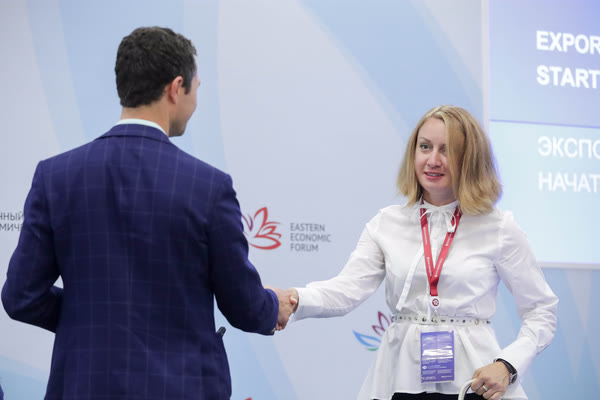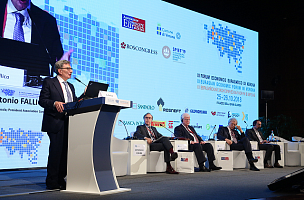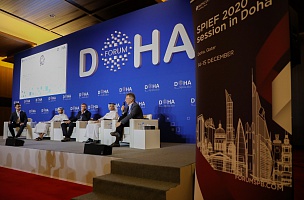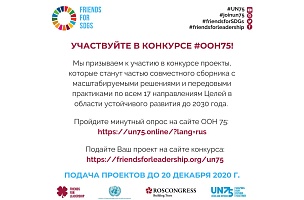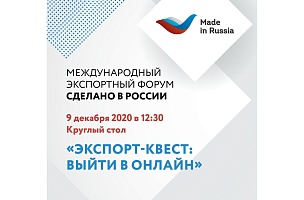KEY CONCLUSIONS
Exporting potential of small businesses has not yet been unlocked, both in the Far East and in Russia as a whole
“Today, out of 5.6 million companies in the SME sector, only 55,000 are exporters. That represents just 1%. In developed countries, that number stands at 5% to 10%. We have plenty of room for improvement,” Natalya Minayeva, Regional Project Director, Russian Export Centre.
“The most important thing that keeps people here is a stable income, earnings that are provided by an effective business. And effective business means new areas of cooperation, where niches have not been occupied yet,” Valentina Filonenko, Deputy Minister of Economic Development of Khabarovsk Territory.
“What potential do we have in the Far East? From the standpoint of where our youth and where our SMEs are. First of all, the IT services, the export of education, the export of tourism. It appears to me that the export of tourism has very significant potential for the development of the region’s economy. And, of course, there is export of creative industries,” Tatiana Poltavets, Head of the MBA Export to Asia Programme, Academy of Management, Far Eastern Federal University.
“Speaking about the volume of shipments, it is growing year over year. Last year, it increased by 26% for the Russian Post in general and amounted to 2.2 million items per year. It grew from 1.8 million to 2.2 million; we see this trend and expect it to hold in the upcoming years,” Denis Buzykin, Director of E-Commerce, Far East Macroregion, Russian Post.
“Franchise as an export model is also an emerging trend, and we see that often a successful business can be scaled up through a franchise sale. In terms of export, it is a fairly new direction which is not yet fully exploited by Russian companies, but they are starting to do it already,” Maxim Chereshnev, Chairman, Russian Trade and Economy Development Council.
PROBLEMS
Conditions and trends are changing rapidly; Russian authorities and businesses do not keep up with the changes
“As for the export of goods, between Indonesia and Russia, at this point in time it is down. It used to be 3 billion, now it is 2.4 billion. This potential is extremely underestimated,” Lubarto Sartoyo, Investment Advisor to the Ambassador of the Republic of Indonesia to the Russian Federation.
“The world is changing. What are entrepreneurs telling us now? They ask for help, they ask for additional support measures, they ask for their expenses on marketing through search engines to be either compensated or prepaid so that their spending on Google could be covered. But can you name the main search engine for the 16-year-olds? It is TikTok. They do not search on Google, for them it would be archaic. And frankly we do not know what support measures would be relevant for them,” Natalya Minayeva, Regional Project Director, Russian Export Centre.
“We must take into account that we are part of the global competition, and marketplaces leave us no chance to forget this. A specific product detail page becomes more important than some local brand, even if it is very well-known in our country,” Maxim Chereshnev, Chairman, Russian Trade and Economy Development Council.
“As for the non-resource non-energy exports, there are no organized records of service exports in Russia. We do not yet understand how to calculate their contribution to the social and economic development of the regions. Therefore, it is quite difficult for us to predict,” Valentina Filonenko, Deputy Minister of Economic Development of Khabarovsk Territory.
SOLUTIONS
Government support has become even more accessible
“Small businesses come to us, and 80% of their requests are related to non-financial support measures. They are looking for business partners: “Find us someone who would buy from us, and do not interfere afterwards.” But in reality, it turns out in the process that there are many caveats, there is certification in other markets, which is costly and time-consuming, and no bank would ever finance that. We need government support in this part. Currently we more than cover it with both the regional infrastructure and the federal support measures,” Natalya Minayeva, Regional Project Director, Russian Export Centre.
“Now all documents can be submitted digitally. It is the same thing; it is all about speeding up the processes. Government support is trying to keep up with these developments,” Natalya Minayeva, Regional Project Director, Russian Export Centre.
“As the vanguard of education in the Russian Far East, FEFU was just meant to create such a unique programme as the MBA Export to Asia. We are about to launch it this year. They come over to us from all over Russia: Kaliningrad, Tolyatti, Sevastopol, Tula, Tver,” Tatiana Poltavets, Head of the MBA Export to Asia Programme, Academy of Management, Far Eastern Federal University.
For more information, visit the Roscongress Foundation’s Information and Analytical System at roscongress.org.


